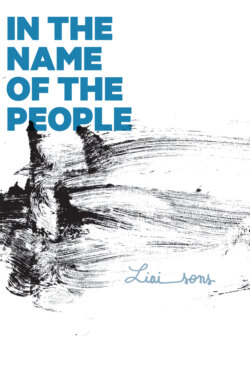Читать книгу In the Name of the People - Liaisons - Страница 20
На сайте Литреса книга снята с продажи.
THE RUSSIAN SPRING VS. MAIDAN
ОглавлениеThe 2014 Winter Uprising in Ukraine was deep and long. When former president Viktor Yanukovych ran away, the vast majority of those who took part in the movement were ready to stay in the streets to expand the Revolution of Dignity (the official Ukrainian name of the events).
Vladimir Putin’s regime was in a delicate position. It had been dealing with a weak economy since 2012, and was still weakened by the protest cycle of 2011–2012. A protest movement so close to Russia’s borders, and a successful one at that, wasn’t a welcome event, but the regime had managed to create an internal unity and delegitimize every uprising and resistance. The Maidan events were not yet over when Russia annexed Crimea, creating a de facto war where there was a “popular” uprising and sending a message to neighbors that uprisings could weaken their country and make it easy prey for annexation.
The annexation of Crimea was met with a spectacular wave of nationalist euphoria. Since the independence of Ukraine in 1991, Crimea had been first on the list of territories to reclaim for Russian nationalists. After 2014, Krymnash, meaning “Crimea is ours,” became both a meme and foundation for a new imperial consensus.
Two other important terms also appeared at that moment, although they are now all but forgotten: “Russian Spring” and “Russian World.” Russian Spring was a direct reference to the Arab Spring, which Russian ideologists had declared, with the utmost seriousness, was nothing more than a special CIA operation against legitimate leadership in the Arab world. But the Russian Spring should have been the authentic uprising of the Russian People, willing to reunite under their leader and state as a part of the Russian World. As this potentially refers to any place and land historically related to Russia or with a significant Russian-speaking population, the scope of the so-called Russian World has always been unclear.
As with every populist idea, the Russian World was presented as something natural and self-evident—it was completely natural for Russian speakers to want to be annexed by the Fatherland. Through this discursive operation, it was not a question of the Russian Empire (re)conquering territories, but of the Russian people liberating themselves from the alienating rule of the West and coming back to the homeland. Apparently it was just like World War II, when the Red Army did not conquer new territories in Europe and Asia, but liberated these people from the yoke of fascism.
Through this lens, the annexation of Crimea simply became a “reunion,” a manifestation of the unanimous will of the Crimean people to return to their homeland. Those who were not part of that consensus—like the native Crimean Tatars, for instance, who were well organized and protested the annexation—were simply ignored or seen as traitors. After the annexation, all the leftists, activists, and anarchists had to escape. Those who remained ended up in jail, or either just disappeared after a raid. Every public political activity became impossible. It’s Russia, after all, and Russia means war.
